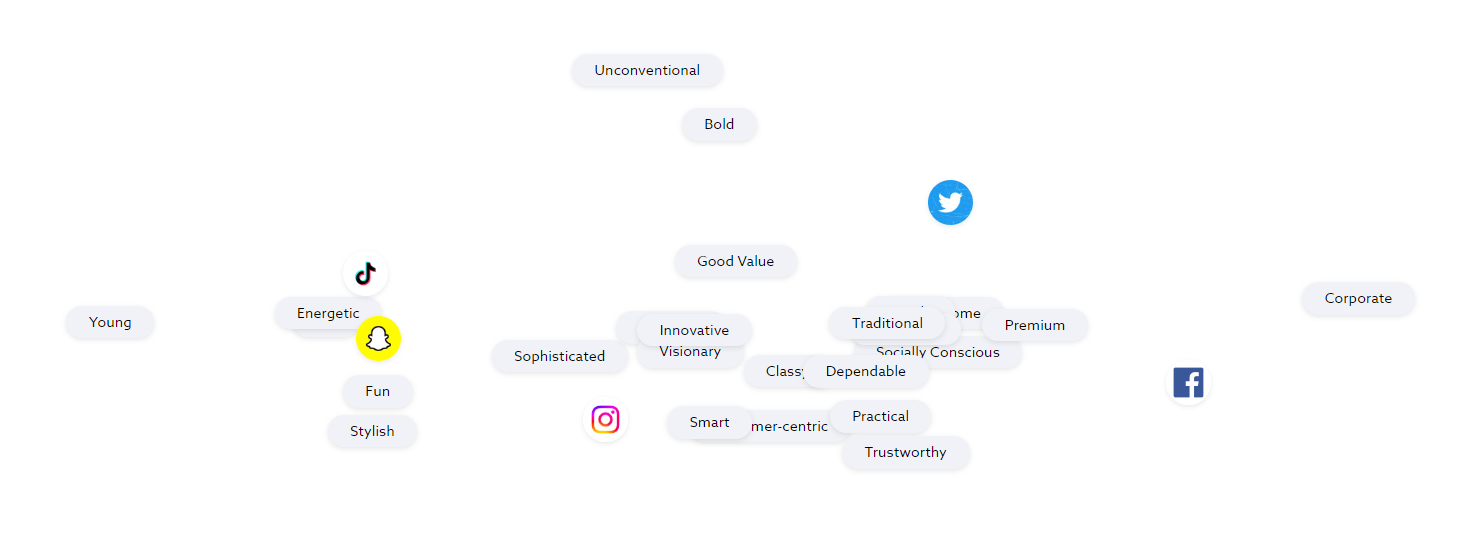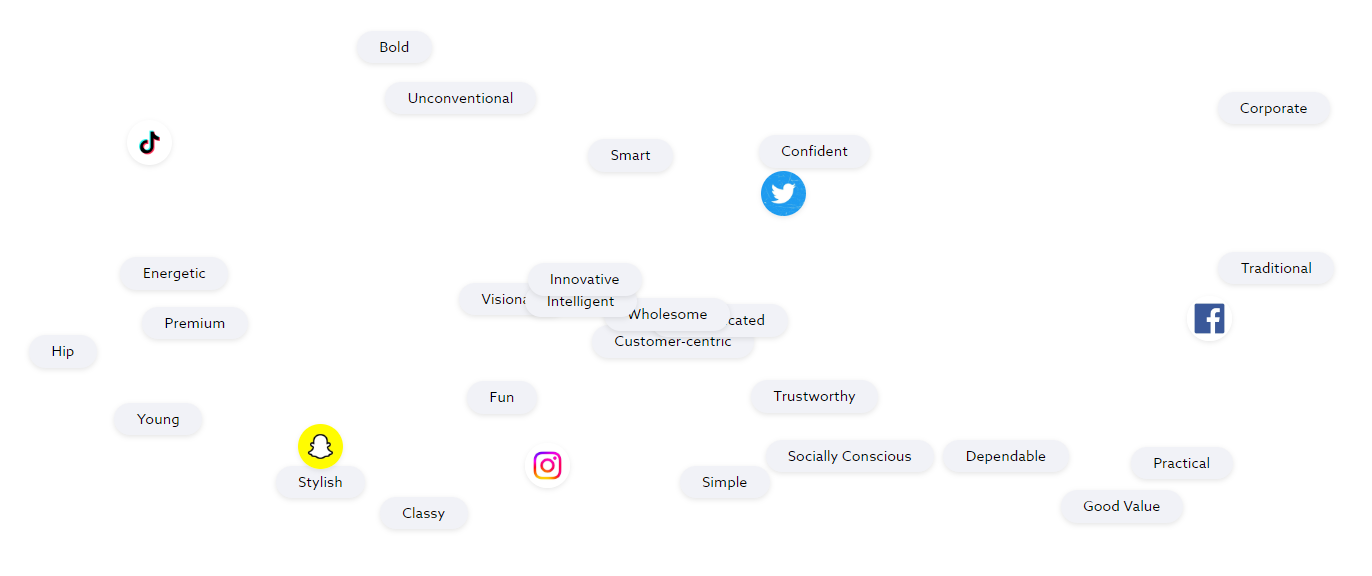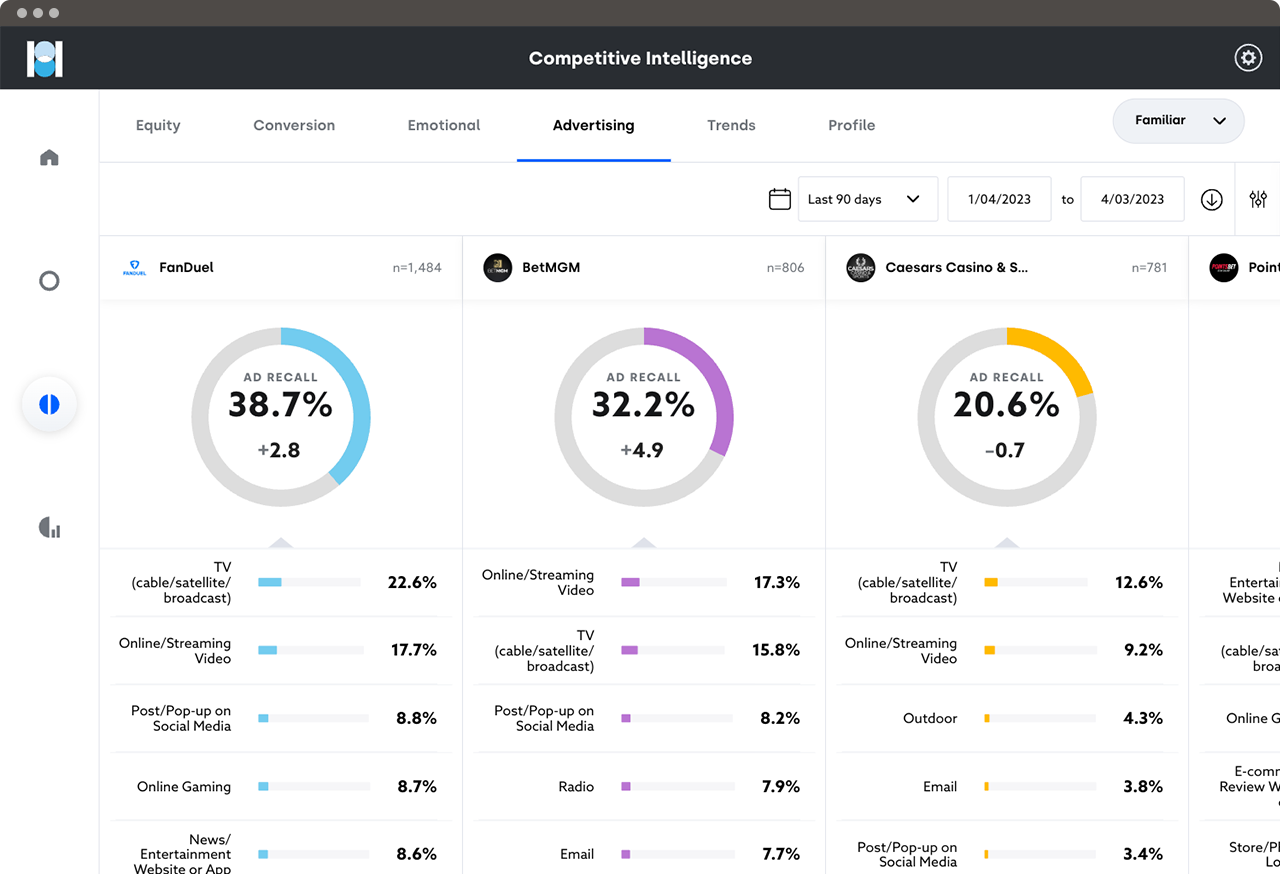Brief • 2 min Read

Did you grow up watching Bonanza or The Office? Have you ever used dial-up internet? Do you have a collection of VHS tapes?
The country has evolved with each generation, shaping consumers’ worldviews, preferences, and norms. Consumers’ unique experiences impact everything, including how they think about and use social media platforms. While over 70% of US adults use social media apps, their perception of the platforms greatly differs between generations.
Below, we used QuestBrand data to map what each generation of US adults – Gen Z, Millennials, Gen X, and Baby Boomers – thinks about five leading social media apps – Facebook, Instagram, Snapchat, TikTok, and Twitter. Based on where the brand logos fall in respect to the listed attributes show what each generation feels about the social media platforms.
Interested in learning more about technology industry trends? Download our Technology Industry Snapshot for brand rankings and industry insights.
Gen Z Adults (Ages 18-26)
Born between 1997-2005, Gen Z adults are a generation of digital natives. On average, Gen Zers spend about 3 hours each day plugged into social media. They typically spend more time engaging with their peers online than in person.
Gen Z is the most willing to embrace new technology and emerging social media apps. From the map below, we can see that Gen Z views a more established platform, like Facebook, as “corporate,” while newer TikTok is more often described as “fun.”
Social Media Perceptual Map – Gen Z Adults

QuestBrand. 1/1/23-5/30/23. Base: Gen Z adults, n=1,700.
Millennials (Ages 27-42)
Born between 1981-1996, social media apps were just launching as Millennials were growing up – Facebook started in 2004, Twitter in 2006, and Instagram in 2010. Unlike many Gen Zers, Millennials remember a time before social media. However, this generation has fully embraced social media apps, with the majority logging on at least once a day.
Like Gen Z, Millennials view stalwart Facebook as more “traditional” and “corporate.” In contrast, Snapchat and TikTok are seen as more “fun” and “energetic.”
Social Media Perceptual Map – Millennials

QuestBrand. 1/1/23-5/30/23. Base: Millennials, n=3,322.
Gen X (Ages 43-58)
Gen X was born between 1965-1980. The youngest Gen Xers were 24 when Facebook started, meaning that Gen X were not introduced to social media until they were solidly into adulthood. Today, more than three-quarters of Gen X are on social media networks, with Facebook their platform of choice.
Like their younger counterparts, Gen X describes TikTok and Snapchat as “energetic” and “fun.” Instagram has carved out an image of being more “visionary” and “smart” in Gen X’s minds. In contrast, Instagram owned “simple” and “wholesome” among Millennials.
Social Media Perceptual Map – Gen X

QuestBrand. 1/1/23-5/30/23. Base: Gen X, n=2,771.
Baby Boomers (Ages 59-77)
Baby Boomers were born between 1946-1964, and were middle aged before social media apps took off. They are the least likely generation to create a profile on a new social media app; however, they have engaged with some apps – like Facebook – primarily to connect with friends and loved ones.
Due to the increased social connections, Baby Boomers are the most likely generation to say that social media will improve their lives. Younger generations are more likely to link social media apps with anxiety and other mental health concerns.
With Baby Boomers, Twitter owns “confident,” while Snapchat is seen as “stylish.” TikTok, an app more popular with a younger demographic owns “bold” and “energetic.” Once again, Facebook owns “traditional” and “corporate.”
Social Media Perceptual Map – Baby Boomers

QuestBrand. 1/1/23-5/30/23. Base: Baby Boomers, n=2,286.
Understanding how consumers view and use these apps is essential to brands, and marketers, as they decide where to best reach each audience. Tailor marketing campaigns to certain social media platforms based on what your audience expects, and wants, to see.
Subscribe for more Insights
Subscribe to our newsletter for the latest trends in business, politics, culture, and more.

Related Content








